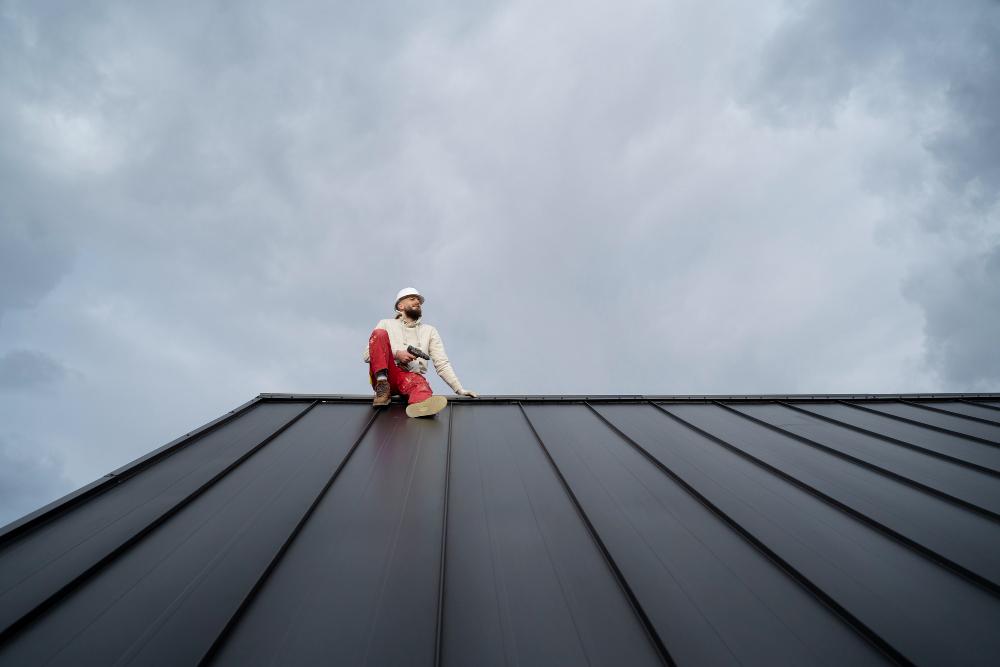
When choosing the material for a flat roof, two popular choices include TPO and PVC - two widely utilized roofing materials in commercial and residential spaces with distinct benefits and drawbacks that should help inform any decisions regarding repair or replacement projects. Milledge Roofing Company knows understanding these will ensure an informed choice about roof repair or replacement decisions is made.
TPO (Thermoplastic Polyolefin) roofing material has become popular with roofing contractors due to its durability and cost-effectiveness. TPO consists of polypropylene mixed with ethylene-propylene rubber for greater resistance against ultraviolet radiation, chemicals, and ozone pollution. It is also highly reflective, which allows buildings to stay cooler by reflecting sunrays away, thus decreasing air conditioning costs.
TPO roofing typically comprises large sheets welded together by heat to form an airtight seal and provide reliable long-term protection without breaking the bank. Furthermore, its material properties allow for the simple welding of new pieces to repair them easily when necessary. TPO can provide long-term protection without breaking your budget! When it comes to repairs though TPO may prove more challenging as you must cut away large sections to attach new pieces; repair work typically becomes much simpler compared to more durable roofing options like asphalt.
Polyvinyl chloride roofing (PVC), often called Polyvinyl Chloride roofs (or "Vinyl Roofs," is another popular material utilized by roof contractors. Like TPO, its composition consists of plastic. However, PVC includes additives that help resist UV light exposure; making this durable roofing option great for restaurants or other businesses that produce grease emissions from ventilation systems. PVC roofs have become particularly sought-after among restaurants that rely heavily on ventilation systems; making these durable roofs ideal.
PVC material can also be installed using large sheets that are sealed using hot air welding to form both water- and airtight seals. PVC stands out among its competitors due to its flexible nature, which makes it particularly beneficial in colder climates where materials must expand and contract without cracking during expansion or contraction cycles.
Whilst making comparisons of these materials, several key areas must be kept in mind when doing so:
TPO roof cladding tends to be less expensive than PVC when considering overall costs for large roofing projects, so this could make an important distinction when making decisions regarding material selection for roofing systems.
While both materials can withstand years of abuse and weathering conditions, PVC generally lasts longer and better handles extreme environments than its counterpart. Therefore, PVC remains a popular choice when building structures in areas with extreme environments.
Installation for both TPO and PVC roofing materials typically follows similar patterns: welding sheets together until there is an even finish, though specific techniques and equipment used might vary slightly between them.
TPO is known to be environmentally friendly due to its recyclable features and reflective property. Both attributes help lower energy usage in buildings. PVC, however, typically is not recycled due to releasing harmful toxins when burned if burned too hotly.
Take into account your roof's specific needs when selecting between TPO and PVC roofing solutions. If cost is the primary driver and durability and effectiveness are still top priorities, TPO could be an appropriate option; on the other hand, PVC could give it extra support against environmental conditions or chemical exposures.
Consultations with professional roofing companies can give you insights tailored to your particular circumstances, whether that is repairs, shingle replacements, or installations of new roofing materials - an experienced provider can guide your decisions with care and guide your decisions regarding repairs or installations of new systems.
Both TPO and PVC offer distinct advantages when applied to flat roof applications, so your selection depends on factors like budget, environmental concerns, and your roofing project's specific durability and chemical resistance needs. Consult Milledge Roofing Company when making this important choice to make the right selection that will protect your building for decades ahead.